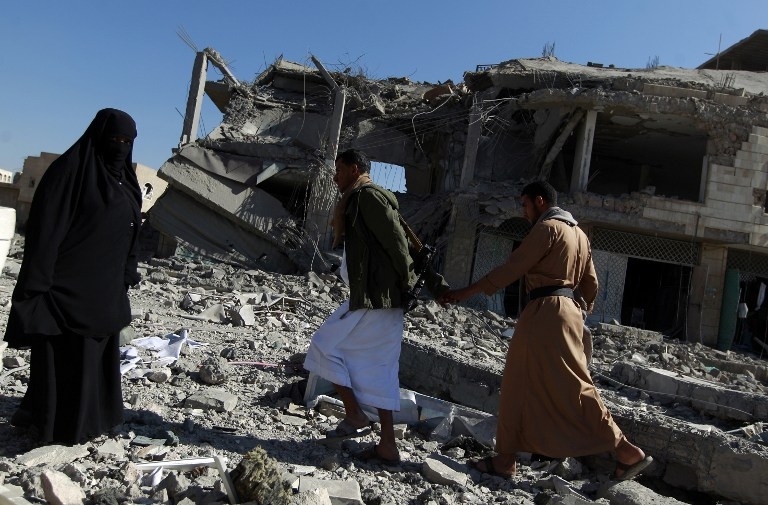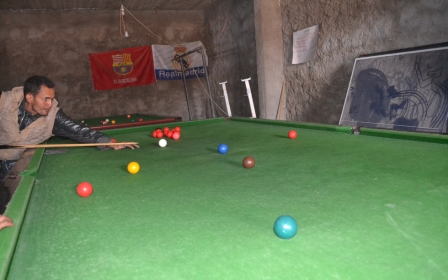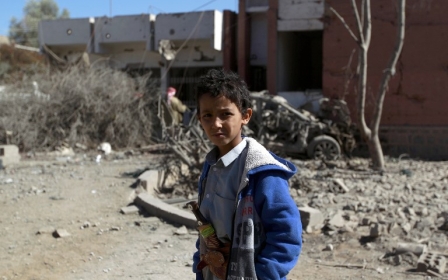Amnesty urges arms embargo on Yemen warring parties

Amnesty International called Monday for an arms embargo on all warring parties in Yemen, including the Saudi-led coalition battling Iran-backed Shia Houthi rebels, ahead of an Arms Trade Treaty meeting in Geneva.
The coalition on Sunday denied targeting civilians after air strikes hit a market northeast of the capital Sanaa, killing at least 40 people on Saturday, according to Al Jazeera.
The rights watchdog said it has documented violations of humanitarian and human rights law, including possible war crimes, by both sides since the Yemen conflict broadened in March last year.
"Amnesty International is urging all states to ensure that no party to the conflict in Yemen is supplied –- either directly or indirectly –- with weapons, munitions, military equipment or technology that would be used in the conflict until they end such serious violations," it said in a statement.
The group called "for any authorisation of arms transfers to any party to the Yemen conflict to include a strict, legally binding guarantee that the end use will be in line with international humanitarian and human rights law, and that such arms transfers will not be used in Yemen", it said.
"The embargo call goes far beyond existing international sanctions on parties to the conflict in Yemen," it added.
UN Security Council Resolution 2216, adopted in April last year, imposed an arms embargo only on the Huthi rebels and their allies, forces loyal to former President Ali Abdullah Saleh, it said.
A non-binding European Parliament resolution adopted on 25 February "called for the EU to seek to impose an arms embargo on Saudi Arabia, but not other parties to the conflict", Amnesty added.
But Amnesty said it "is not calling for a total ban on coalition members acquiring arms lawfully for legitimate uses outside Yemen -– for example, arms used for the protection of humanitarian aid or participation in peacekeeping operations".
The UN warned this month of a "human catastrophe unfolding in Yemen", where it says more than 6,100 people had been killed in the fighting since last March.
It says another 3,000 people had been wounded and 2.5 million forced to flee their homes.
In March 2015, Saudi Arabia began leading a military campaign against the Shia rebels and their allies in its southern neighbour.
The Arms Trade Treaty, an accord laying down international rules for the global arms trade, entered into force in December 2014.
It compels countries to set up national controls on arms exports. States must assess whether an exported weapon could circumvent an international embargo, be used for genocide and war crimes, or be used by "terrorists" or organised crime.
New MEE newsletter: Jerusalem Dispatch
Sign up to get the latest insights and analysis on Israel-Palestine, alongside Turkey Unpacked and other MEE newsletters
Middle East Eye delivers independent and unrivalled coverage and analysis of the Middle East, North Africa and beyond. To learn more about republishing this content and the associated fees, please fill out this form. More about MEE can be found here.




